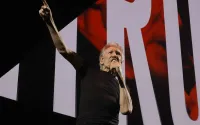15 December 2004Graham Bowley
Call it bad timing, or just bad luck. As the date nears for a decision on membership negotiations with the European Union, it is Turkey's misfortune that it is seeking to enter this exclusive, mainly Christian, club at a time when many Europeans believe they are witnessing the failure of multicultural society in Europe. Many think this should mean the death of a multicultural EU as well. And while European leaders will most likely say yes to Turkey on Thursday or Friday in Brussels, it will be a reluctant yes, reflecting the views of a growing number of EU citizens.The shift in perceptions is particularly palpable in the Netherlands, where the political climate was transformed last month by the murder of the filmmaker Theo van Gogh by a killer who slit his throat and pinned to his chest with a knife a text calling for Muslims to rise up against "infidels."In Amsterdam last week, as cyclists pedaled past canal houses outside, 12 Dutch visitors at the Anne Frank house were asked for their views on Muslim integration into Dutch society. They were told to press a green button if they thought it was fine for politicians to criticize Muslim immigrants who did not adopt Dutch practices, or to press a red button if they thought this amounted to discrimination.Feelings of guilt over the treatment of Jews in World War II, as well as a strong liberal commitment to a multicultural society in the Netherlands, would have forbidden criticism. But this time, when the visitors pushed their buttons, green lights illuminated the room.In the famously tolerant Netherlands, it was a vote for a little less tolerance, a victory for a tougher line against those immigrants who, many Dutch believe, are unwilling to embrace core Dutch values."People believe in an emotional way we are losing so much of our European identity," said Hans Westra, director of Anne Frank House. "We are looking for some new basic values to keep us together as a nation, not values from the Middle Ages that we fought for so long to get rid of." The harder tone in the Netherlands is part of a broader debate about identity that is sharpening this week as 25 European leaders meet to decide whether to allow Turkey, with its mainly Muslim population of 70 million, to open negotiations to join the EU. Majorities in France and Germany say they oppose Turkey's entry, according to the latest opinion polls, and sentiment is also shifting elsewhere."People have become more aware of the huge problems you face to make another culture and another religion compatible with your own," said Bart Jan Spruyt, director of the Edmund Burke Foundation, a conservative research organization in The Hague.The turnaround in sentiment is significant measured against feelings a few months ago, when Turkey's road to EU membership seemed more assured.Previously, European supporters of Turkey's accession saw the promise of membership as a reward for reformers in Ankara, led by Prime Minister Recep Tayyip Erdogan, after improvements in the country's human rights record. It was a way for them to encourage the reformers to continue steering their country on a democratic, westerly course.Membership, this view maintained, would also be a geopolitical gesture to the broader Muslim world. It would show that the West can live with the East.Everything pointed toward acceptance. Turkey had been waiting for EU membership for more than 40 years. It became an associate member in 1963, and applied for full membership in 1987. It has belonged to other Western institutions, such as NATO and the Organization for Economic Cooperation and Development, for decades. In October this year, the European Commission recommended that EU membership negotiations begin soon, probably next year.But while this was the view of the governing elite, it was increasingly at odds with public opinion.Since the enlargement of the EU in May, when 10 new countries joined, some Europeans have felt they are losing jobs to their new neighbors in the formerly Communist East, where wages and taxes are lower. This fear is especially acute in nations such as Austria that share a border with one of the newest EU members. Many now think that bringing Turkey inside the EU would exacerbate the problem.The political elite began to worry that the EU would not function properly with yet another member sitting at an already crowded negotiating table. Adding another nation would also fundamentally change what the EU's founders, notably France and Germany, originally intended the union to be - a small, coherent political unit that projected the two nations' will across the Continent.But probably the biggest complaint has centered on values. This is not always stated directly, perhaps because of concerns about political correctness. But many Europeans simply do not want the government of a big Muslim nation sitting at the EU table.Assuming membership negotiations go ahead, by the time Turkey joins, which might be around 2020, it will most likely be one of the most populated countries in the EU. As EU votes are apportioned according to population, it would also be among the most powerful. Even if Turkey's current leaders profess to be secular, conservative Europeans do not want to be vulnerable to a future government in Ankara that could seek to further a Muslim agenda "that wants to influence the educational system or believes that the Holy Book of Islam is above democratic debate," says Paul Scheffer, professor of urban sociology at the University of Amsterdam.A poll conducted by the Ifop Institute and published in the French newspaper Le Figaro this week found that 67 percent of French voters, and 55 percent of Germans, now oppose Turkish membership. In Britain, 41 percent favor Turkey's entry, while 30 percent are against it. In Spain, 65 percent are in favor, while in Italy 49 percent support Ankara's bid.According to Robert Manchin, chairman of the polling group Gallup Europe in Brussels, nations on the geographical fringes of Europe, such as Ireland, Britain, Portugal and Spain, generally favor Turkish membership.It is in the heartlands of the EU that opinion has turned most negative, in regions that already have large Muslim populations and that, says Manchin, could be the likeliest destinations for immigrants once Turkey is in the EU.In the Netherlands, a new consciousness of the country's foreign population has emerged since van Gogh's murder, especially in cities such as Amsterdam and Rotterdam where around half of the citizens are first- or second-generation immigrants.Geert Wilders, a rightist politician who calls for an end to "tolerance of intolerance," is gaining popularity. The public mood has influenced the government stance. "We have had our part of immigration. Immigration is not a solution for anything," said Gerrit Zalm, the Dutch finance minister, in an interview.Van Gogh's murder has had ramifications beyond the Netherlands.Germany, the European nation with the heaviest historical guilt, is home to more than 2 million Turks, the largest Turkish population in Western Europe. It is now grappling with the issue of "Leitkultur," or whether it can have a defining culture, and what that culture should be.Last week, Angela Merkel, leader of the center-right opposition Christian Democratic Union, and challenger to Chancellor Gerhard Schröder, told the party's annual conference that multiculturalism in Germany had failed and that Turkey would make it worse."A Europe with Turkey as a full-fledged member won't be a Europe that is fully integrated," she warned. "The degree of European integration achieved over 50 years must not be thrown away just like that."Merkel has been the strongest German proponent of the idea of a "privileged partnership" for Turkey that stops short of full membership. This idea has also been championed in France, which has the biggest Muslim population of any country in Europe. "French opinion is very afraid of Muslims, of Islam, of everything new," says Nora Seni, a historian at the University of Paris.While President Jacques Chirac supports Turkish membership, other leading French politicians are opposed, reflecting public unease. Now, to Ankara's fury, even Chirac has suggested that Europe might consider an alternative relationship, and has promised a referendum on the question."The same thing that happened in the Netherlands has also happened in Switzerland, Denmark, Austria, Belgium, Italy, France," says Scheffer of the University of Amsterdam."The fact that we live in a world without borders has provoked politicians to come to the fore who are urging us to close the borders," he said. "Migration is increasingly perceived by many people as a loss of sovereignty."Scheffer believes that Europe should admit Turkey as proof to its own immigrants that it is committed to secularism, and not to a religious divide.Turkey's leaders, meanwhile, warn that any rejection would undermine their hard-won reforms and push the country back toward extremist Islam. Erdogan says he will accept nothing short of full membership.Under such pressure, European leaders are expected to give Turkey the green light this week, although there may be many conditions and caveats, such as limits on labor migration, and no firm date for when membership could start.With the new focus on core European values evident even in traditional examples of European openness, such as Anne Frank's house in Amsterdam, the shift in perceptions may well hinder Turkey's dreams, and could even kill them, over the next decade of talks.
http://www.iht.com/bin/print_ipub.php?file=/articles/2004/12/14/news/turkey.html






